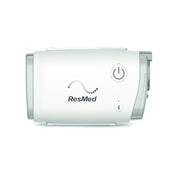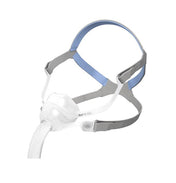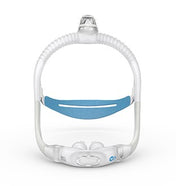WHY IS SLEEP IMPORTANT?
Although scientists are still learning exactly what is happening in our bodies when we sleep, the evidence is clear: Adequate Sleep is CRITICAL for short and long term physical and mental health.
In the short term, Sleep improves:
Our Learning and Memory.
Sleep performs three critical functions for learning and memory:
- INFORMATION TRANSFER: Information you’ve just learned is stored in the hippocampus (your brain’s short term “filing cabinet”). During sleep, information transfers from the hippocampus to the brain’s Cortex (your long term “hard drive” for memory storage), locking in learning for future accessibility.
- REPLAY: during sleep, information processed during the day actually replays over and over again in your brain, strengthening the neural networks and engraining these memories into your brain’s circuitry.
- INTEGRATION: during sleep, your brain integrates new information with information already stored in your brain, which can lead to novel and creative solutions to previously unsolved problems. This is why we say “sleep on it”!
Our Mood and Emotions.
Our emotional responses are largely controlled by the Amygdala, a deep emotional center of the brain. Sleep Research Brain Scanning conducted by Dr. Matthew Walker has shown that in those suffering from lack of sleep, the amygdala is hyperactive, negatively affecting mood, anxiety, stress and mental exhaustion. Sleep appears to improve the brain’s regulation of the amygdala, leading to improved emotional states. One study from the University of Pennsylvania found that subject who were limited to 4.5 hours of sleep a night for one week reported feeling stressed, angry, sad, and mentally exhausted. When the subjects returned to normal sleep, they reported a dramatic improvement in mood!
In the long term, Sleep impacts:
Our Weight
Several studies have linked insufficient sleep and weight gain. For example, studies have shown that people who habitually sleep less than six hours per night are much more likely to have a higher than average body mass index (BMI). Sleep is now being seen as a potential risk factor for obesity along with the two most commonly identified risk factors: lack of exercise and overeating.
During sleep, our bodies secrete hormones that help to control appetite, energy metabolism, and glucose processing. Obtaining too little sleep upsets the balance of these and other hormones. For example, poor sleep leads to an increase in the production of cortisol, often referred to as the "stress hormone." Poor sleep is also associated with increases in the secretion of insulin following a meal. Insulin is a hormone that regulates glucose processing and promotes fat storage; higher levels of insulin are associated with weight gain, a risk factor for diabetes.
Insufficient sleep is also associated with lower levels of leptin, a hormone that alerts the brain that it has enough food, as well as higher levels of ghrelin, a biochemical that stimulates appetite. As a result, poor sleep may result in food cravings even after we have eaten an adequate number of calories. We may also be more likely to eat foods such as sweets that satisfy the craving for a quick energy boost. In addition, insufficient sleep may leave us too tired to burn off these extra calories with exercise.
Our Cardiovascular Health
Studies have found that a single night of inadequate sleep in people who have existing hypertension can cause elevated blood pressure throughout the following day. This effect may begin to explain the correlation between poor sleep and cardiovascular disease and stroke. For example, one study found that sleeping too little (less than six hours) or too much (more than nine hours) increased the risk of coronary heart disease in women.
There is also growing evidence of a connection between obstructive sleep apnea and heart disease. People who have apnea typically experience multiple awakenings each night as a result of the closing of their airway when they fall asleep. In addition to these sleep disturbances, apnea sufferers also experience brief surges in blood pressure each time they wake up. Over time, this can lead to the chronic elevation of blood pressure known as hypertension, which is a major risk factor for cardiovascular disease. Fortunately, when sleep apnea is treated, blood pressure may go down.
Our Lifespan
Considering the many adverse health effects of insufficient sleep, it is not surprising that poor sleep is associated with lower life expectancy. Data from three large cross-sectional epidemiological studies reveal that sleeping five hours or less per night increased mortality risk from all causes by roughly 15%.
Adults 45+ who sleep less than 6 hours are:
- 200% more likely to have a heart attack
- 3.7x as likely to suffer a stroke
- Significantly more at risk for type 2 diabetes
- 3x as likely to develop cancer
The Bottom Line:
Sleep is IMPORTANT! Next up in our Sleep Week series, we’ll learn about sleep stages and what’s happening as we sleep.











